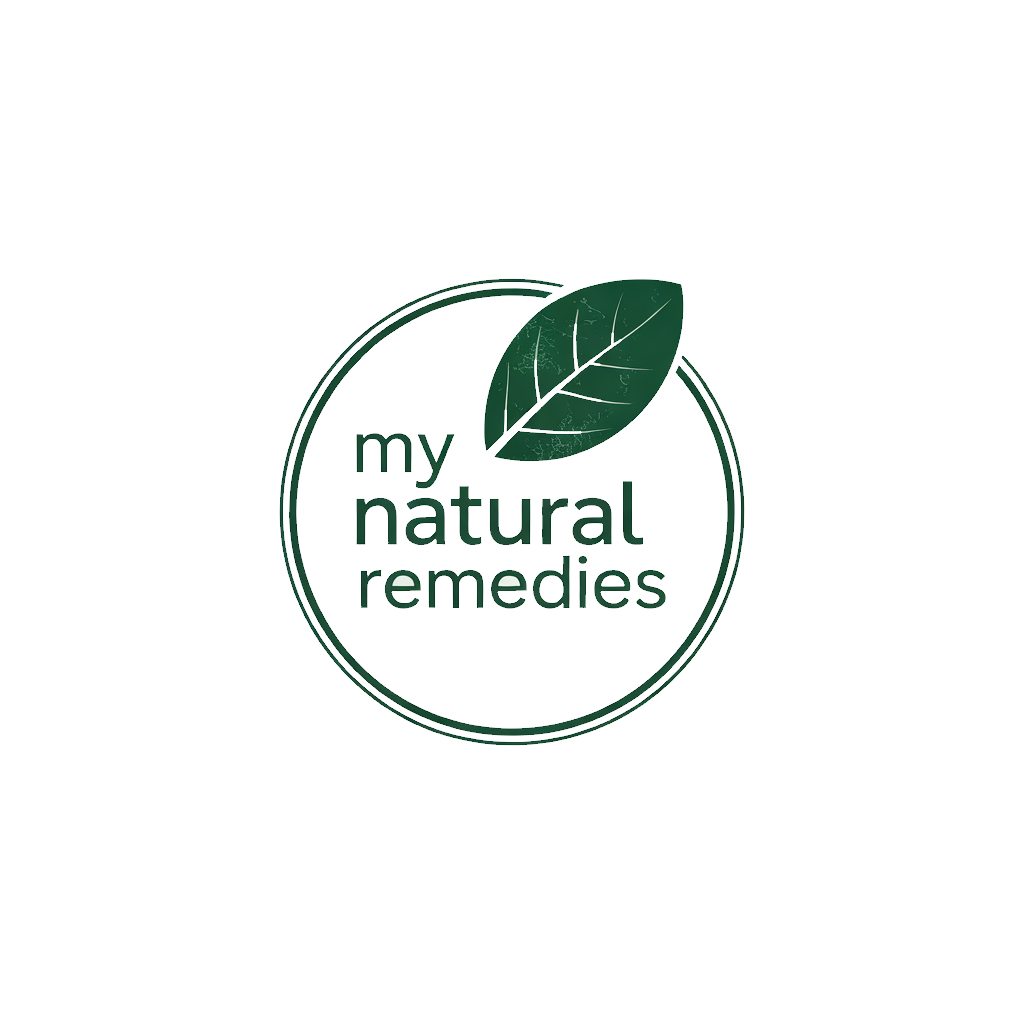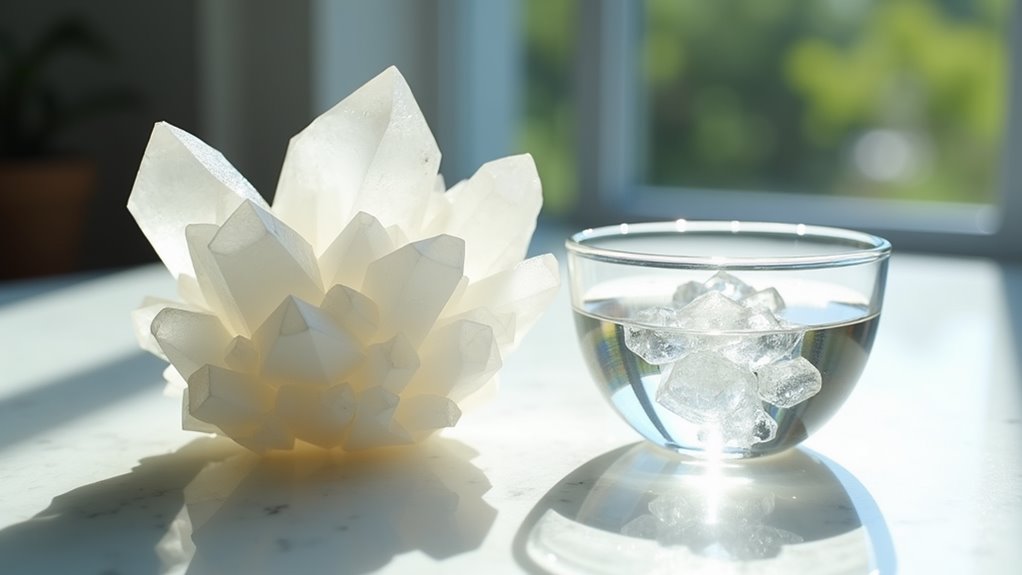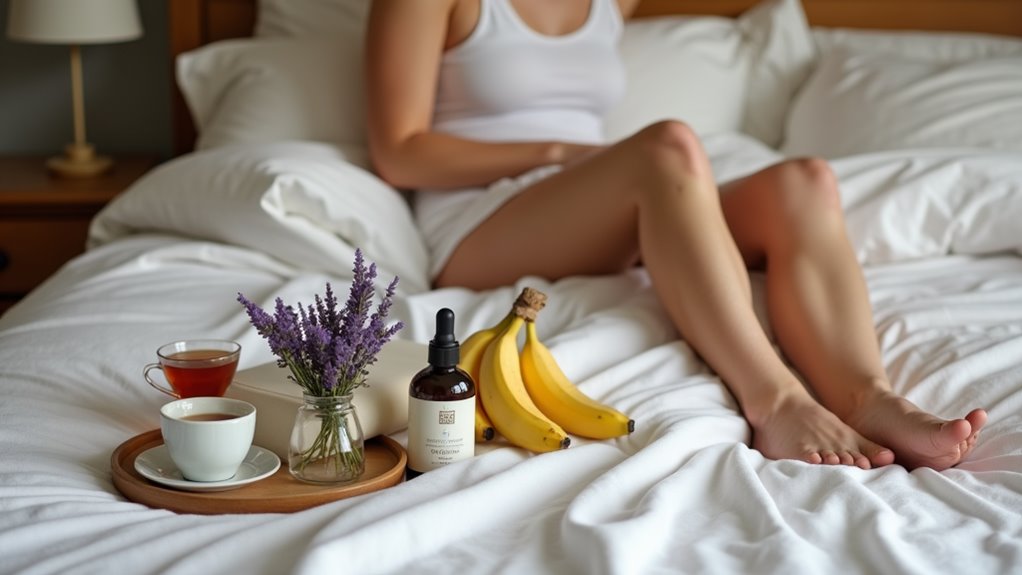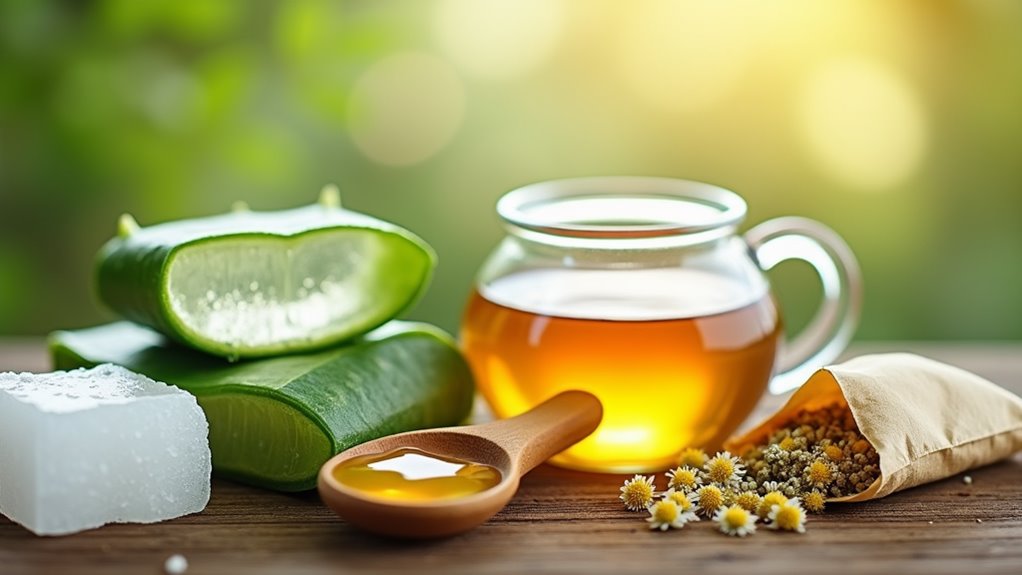DIY Toothpaste That’s Better Than Store-Bought. You Won’t Believe It!
You can make a safer, more effective toothpaste at home using simple ingredients like coconut oil, baking soda, and essential oils. This natural alternative eliminates harmful chemicals found in commercial brands while saving you over $40 annually. Your DIY toothpaste will help maintain proper pH balance, support beneficial oral bacteria, and naturally whiten teeth. Plus, it takes just minutes to prepare. Discover how this chemical-free solution can transform your dental care routine.
Why Store-Bought Toothpaste Isn’t Your Best Option
Although store-bought toothpaste may seem like a convenient choice, it often contains harmful chemicals and artificial ingredients that can negatively impact your health.
You’ll find sodium lauryl sulfate (SLS), artificial sweeteners, and triclosan in many commercial brands – ingredients that can cause gum irritation, disrupt hormones, and contribute to antibiotic resistance.
Like many health-conscious people, you probably want to avoid fluoride controversies and synthetic dyes that don’t actually help your teeth.
Most mainstream toothpaste brands also contain glycerin, which can prevent your teeth’s natural remineralization process.
By switching to natural alternatives, you’re joining a growing community of informed consumers who prioritize their oral health without compromising their overall wellbeing.
You’ll discover that making your own toothpaste puts you in control of what goes into your daily oral care routine.
Essential Natural Ingredients for DIY Toothpaste
Three core ingredients form the foundation of any effective natural toothpaste: baking soda, coconut oil, and essential oils.
Baking soda gently scrubs away plaque while balancing your mouth’s pH levels. Coconut oil, with its natural antibacterial properties, helps fight harmful bacteria and reduces gingivitis. Essential oils like peppermint, tea tree, or clove add refreshing flavors while providing antimicrobial benefits.
You’ll also want to consider adding mineral-rich calcium powder to remineralize your teeth and bentonite clay to remove toxins.
A pinch of sea salt can boost your paste’s cleaning power and provide trace minerals. If you prefer some sweetness, stevia powder offers a natural alternative without the risks of artificial sweeteners.
These ingredients work together to create a powerful, chemical-free toothpaste you can trust.
Step-by-Step Recipe Guide
Now that you’ve gathered your natural ingredients, let’s transform them into a homemade toothpaste.
Start by mixing 4 tablespoons of coconut oil with 2 tablespoons of baking soda in a small bowl until smooth. Add 20 drops of peppermint essential oil and blend thoroughly.
Next, incorporate 1 tablespoon of xylitol, stirring until it dissolves completely. For extra whitening power, add 1 teaspoon of bentonite clay.
Finally, mix in 10 drops of trace minerals. Transfer your creation to a small glass jar with a tight-fitting lid.
You’ve just joined the growing community of natural oral care enthusiasts! Your toothpaste will stay fresh for up to three months when stored in a cool, dry place.
Use a small spoon to scoop out your desired amount each time.
Health Benefits of Natural Toothpaste
Switching to natural toothpaste can significantly improve your oral health while eliminating harmful chemicals found in commercial brands.
You’ll join thousands of health-conscious individuals who’ve discovered the power of natural ingredients like coconut oil, which has antimicrobial properties that fight harmful bacteria.
Natural toothpaste helps maintain your mouth’s delicate pH balance and supports beneficial oral bacteria.
You won’t find artificial sweeteners, preservatives, or fluoride that can potentially harm your health.
The minerals in natural ingredients, such as calcium carbonate and baking soda, help remineralize your teeth and protect against decay.
Essential oils like peppermint and tea tree provide fresh breath while offering antibacterial benefits.
Best of all, you’ll know exactly what you’re putting in your body, giving you complete control over your dental care routine.
Scientific Research Behind Natural Dental Care
Recent scientific studies have validated what traditional cultures have known for centuries about natural dental care ingredients.
You’ll find extensive research supporting coconut oil’s antimicrobial properties, with studies showing it reduces harmful bacteria like Streptococcus mutans, the primary cause of tooth decay.
Research from the Journal of Clinical Dentistry confirms that baking soda effectively removes plaque and whitens teeth, while studies in the International Journal of Dental Hygiene demonstrate that essential oils like tea tree and peppermint possess powerful antibacterial qualities.
You’re making a science-backed choice when you opt for natural ingredients.
Clinical trials published in the Journal of Traditional Medicine reveal that neem and clove oil significantly reduce gingivitis and oral inflammation, proving that nature’s remedies can match or exceed commercial alternatives.
Cost Comparison and Long-Term Savings
Making your own toothpaste can save you significant money over time. While a typical tube of natural toothpaste costs around $6-8 and lasts about a month, the ingredients for DIY toothpaste cost roughly $15 upfront but can make up to six months’ worth of product.
You’ll spend only about $30 per year on homemade toothpaste compared to $72-96 for store-bought natural varieties.
The savings become even more impressive when you’re making toothpaste for your whole family. A household of four could save over $250 annually by switching to homemade alternatives.
Plus, most DIY toothpaste ingredients are versatile – you can use them in other personal care recipes, stretching your investment further.
Storage Tips and Shelf Life
Proper storage is essential for maintaining your DIY toothpaste’s freshness and effectiveness. You’ll want to keep your homemade creation in an airtight container that’s clean and moisture-free. While commercial toothpaste can last for years, your natural version requires more attention to storage details.
| Storage Condition | Expected Shelf Life |
|---|---|
| Room temperature | 2-3 months |
| Refrigerated | 4-6 months |
| With preservatives | 6-8 months |
| Without water | 8-12 months |
Check your DIY toothpaste regularly for any changes in color, smell, or consistency. If you notice any separation, simply stir it back together. When in doubt, make a fresh batch – it’s better to be safe with your dental care. Consider making smaller batches more frequently to ensure you’re always using the freshest product.
Common Mistakes to Avoid When Making Natural Toothpaste
While creating your own natural toothpaste can be rewarding, several common pitfalls can affect its quality and effectiveness.
Don’t skip sterilizing your containers, as this can lead to bacterial growth. You’ll also want to avoid using too much baking soda, which can erode tooth enamel over time.
Many DIY enthusiasts make the mistake of adding citrus oils or acidic ingredients, thinking they’ll enhance freshness. These can actually damage your teeth.
Watch out for using metal containers or utensils, as they can react with certain ingredients. Also, don’t eyeball measurements – precise ratios are crucial for proper consistency and pH balance.
Remember not to make large batches that’ll expire before use, and avoid ingredients you haven’t thoroughly researched.
Your natural toothpaste should complement your oral health journey, not compromise it.





